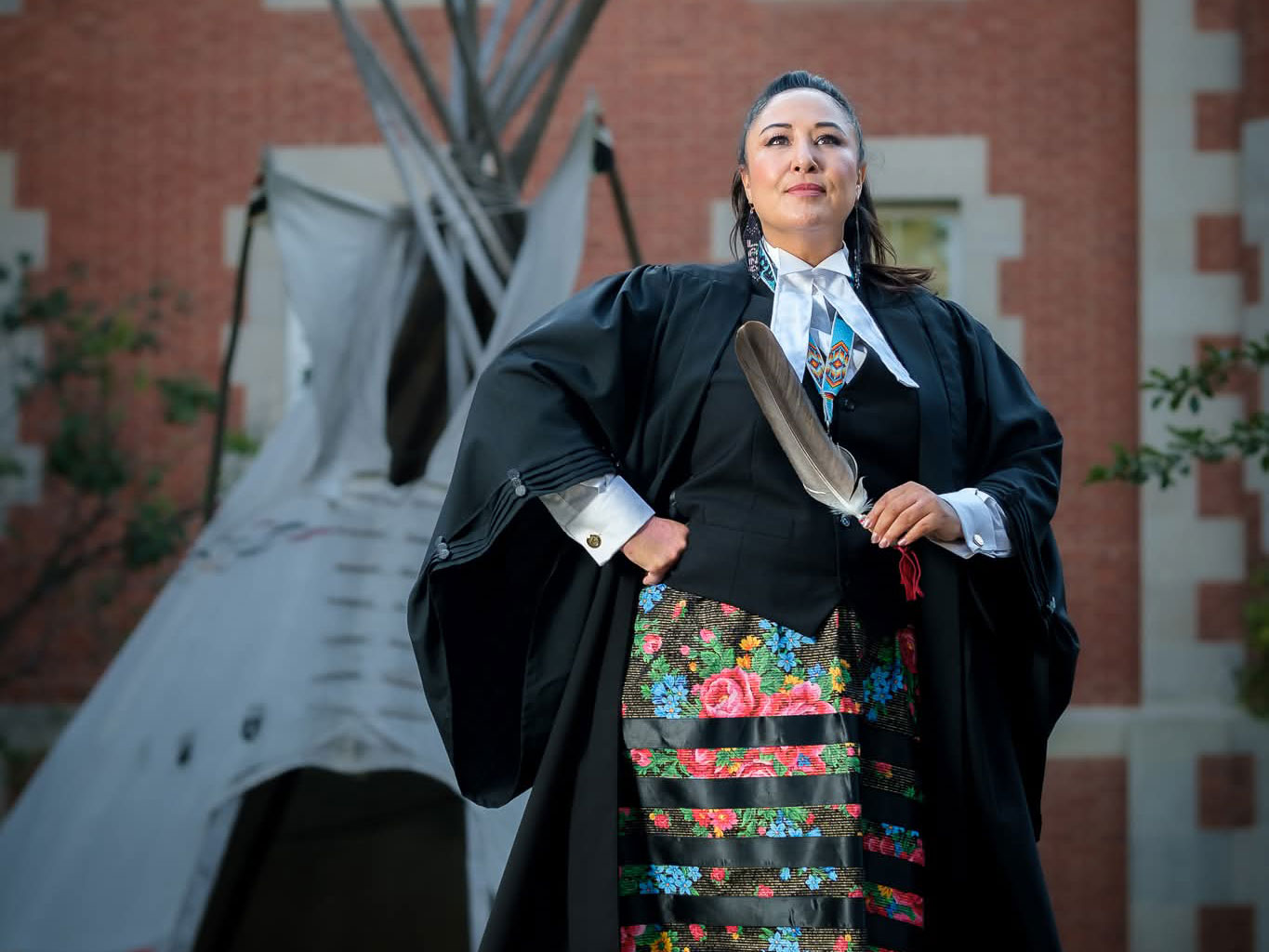Anita Cardinal has been running since high school, a practice she says she inherited from her father. He was an elite runner, she says, who would complete marathons with competitive race times. He was also a residential school survivor.
Cardinal started running partly for exercise, but quickly found that the practice felt like home to her. “Running has always been a place of healing,” she says. In her 30s, she began signing up for races, eventually working her way to ultra marathons — a pursuit she credits with helping her get into law school.
When she applied for the program at the University of Alberta in 2018, she included a passage in her admissions essay about her love of running — how it taught her perseverance and strength. But, as she tells it, there was one member of her law school admissions board that had doubts about her ability to complete the program and didn’t want to admit her. Her advocates on the panel pointed to her essay and her history of running and said, “She runs ultra marathons; she can handle law school.”
She was still in law school in 2021 when news broke that hundreds of unmarked graves had been uncovered at residential school sites in British Columbia and Saskatchewan. Indigenous communities have always known what had happened to their families at Canada’s residential schools, Cardinal says, but that knowledge didn’t lessen the pain, the grief and the loss. “I went for a good long run in the trails, got lost in the trails. And I just let the tears come out and the grief come out,” she recalls. In the face of that pain, Cardinal asked herself, “How do we move with this? How do we know truth? How do we move in spirit with this?”
The answer, she realized, was to share her love of running and her steadfast belief in it as a form of healing. She founded the annual Orange Shirt Day Walk and Run, an event that invites Indigenous and non-Indigenous communities to come together, run and honour Indigenous culture. “We run in truth and run in purpose,” Cardinal says.
